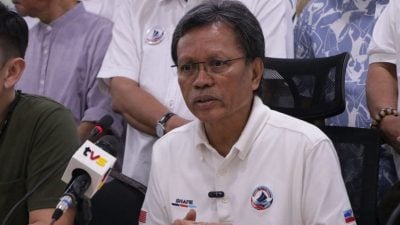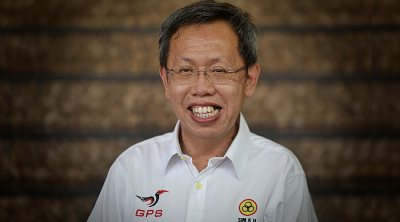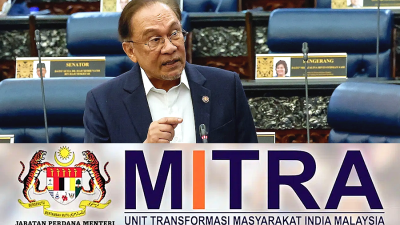
The demand for Sabah and Sarawak to hold 35 percent of Malaysia’s parliamentary seats is not merely a political proposition; it is a clarion call for justice, rooted in the historical political understanding that formed Malaysia and fueled by decades of systemic marginalization.
The Malaysia Agreement 1963 (MA63), which formalized the federation of Malaysia, promised Sabah and Sarawak equal partnership with Malaya, with Sabah and Sarawak as “founders” and not mere states in the new federation.
Yet, for much of the federation’s history, this promise has been betrayed, with Sabah and Sarawak treated as little more than resource colonies for Malaya’s benefit.
The refusal of Malayan-based non-governmental organizations (NGOs) to support this 35 percent seat allocation reveals a persistent colonial mentality, one that seeks to maintain control over Borneo’s political and economic destiny.
Historical foundations of the 35% demand
The formation of Malaysia in 1963 was not a unilateral act but a negotiated partnership between Malaya, Sabah, Sarawak, and Singapore (until its exit in 1965).
The MA63 enshrined specific safeguards to ensure that Sabah and Sarawak would retain significant autonomy and influence.
One critical aspect was the allocation of parliamentary seats, intended to reflect the unique status of these Borneo states.
At the time, Singapore, Sabah and Sarawak were allocated a combined 34 percent of seats in the Dewan Rakyat, a proportion that was meant to guarantee a constitutional amendment proposed by Malaya cannot proceed if one of the three “S” object.
This was not a random figure but a carefully negotiated commitment to balance Malaya’s numerical and political dominance.
When Singapore left the federation, the right thing to do was the redistribute Singapore’s parliamentary seats to Sabah and Sarawak to maintain the status quo.
This was not done and in subsequent redelineation exercises, Sabah and Sarawak lost its balance and is now left with 25 percent of parliamentary seats.
Malaya effectively can change the Malaysian constitution at will. In fact, this is exactly what happened—if you were to count the number of constitutional amendments, it comes out to slightly more than one annually.
In sum, it does not matter what Sabahans and Sarawakians think, Malaya do not need to consult on constitutional amendments.
In fact, Sabah and Sarawak were called “fixed deposit” by Kuala Lumpur for many years—a derogatory term meaning no matter KL does, Sabah and Sarawak will support!
The demand for 35 percent representation is thus not a new claim but a restoration of the original intent—an acknowledgment the original political agreement made prior to the formation that Sabah and Sarawak’s contributions to Malaysia’s economy, culture and geopolitical stability warrant a significant voice in the federation.
Without this, the very foundation of Malaysia as a partnership of equals is rendered hollow.
Malaya’s exploitation: A colonial legacy
For the first 50 years of Malaysia’s existence, Sabah and Sarawak were treated not as founder states but as fixed deposit to keep Umno in power and resource colonies.
MPs from Sabah and Sarawak gave BN its 2/3 majority in parliament. The most glaring example is the exploitation of their oil and gas reserves.
From the 1970s to 2013, an estimated RM500 billion worth of oil and gas was extracted from Sabah and Sarawak, through Petronas.
The Petroleum Development Act 1974 stripped Sabah and Sarawak of control over their oil/gas resources, giving everything to Petronas and, by extension, the federal government in Kuala Lumpur.
This act of economic colonization ensured that billions in revenue flowed westward, leaving Borneo with paltry royalties—just 5 percent—and little say in how their resources were managed.
Malayan leaders justified this as necessary for national development, but the reality was clear: Sabah and Sarawak were plundered to fuel Malaya’s growth, perpetuating a colonial dynamic that treated Borneo as a peripheral territory.
Sabah’s poverty rate, for instance, remained among the highest in Malaysia, peaking at 20 percent in the 1990s, while Sarawak’s rural communities struggled with inadequate infrastructure.
Roads, schools, and hospitals in Borneo lagged far behind those in Peninsular Malaysia, while Petronas pour billions into Putrajaya and the Twin Towers.
Can anyone here name an iconic building built by Petronas in Sabah and Sarawak?
The political awakening post-2008
The year 2008 marked a turning point in Malaysia’s political landscape.
For the first time, the ruling BN/Umno coalition lost its two-thirds parliamentary majority, relying heavily on MPs from Sabah and Sarawak to remain in power.
Suddenly, Malaya’s political elite began to pay attention to Borneo, not out of genuine respect for MA63 but out of sheer necessity.
Promises of decentralization, increased funding, and greater autonomy emerged, but these were tactical moves to secure Borneo’s votes rather than a sincere commitment to justice.
This shift exposed the fragility of Malaya’s rhetoric on federalism.
For decades, Malayan leaders ignored Sabah and Sarawak’s grievances, dismissing calls for fair representation as divisive or unnecessary. Only when their political survival depended on Borneo’s MPs did they begin to acknowledge the imbalances.
This opportunism underscores a critical truth: Malaya’s newfound interest in dealing with historical grievances is not a moral awakening but a pragmatic response to political realities.
If Sabah and Sarawak’s MPs were no longer needed to prop up federal coalitions in the future, Malaya would likely revert to its old ways, sidelining Borneo’s interests once again. This is the lesson from history.
The 35 percent seat allocation is not just a policy goal; it is a symbol of Borneo’s emancipation from decades of exploitation and marginalization.
The hypocrisy of Malayan NGOs
Malayan NGOs, often vocal on issues of governance and human rights, have been mounting a high-profile campaign on the 35 percent seat allocation.
This campaign is not neutral—it is complicity in a colonial mindset that seeks to keep Borneo subordinate.
These organizations, based primarily in Kuala Lumpur with comprador in Kuching, frequently position themselves as champions of justice, yet their failure to advocate for Borneo’s rightful representation reveals a deep-seated bias.
They are quick to lecture Sabah and Sarawak on issues like environmental conservation or democratic reforms, but when it comes to empowering Borneo politically, they retreat into silence or outright opposition.
This behavior reflects a colonial mentality that views Malaya as the intellectual and political center of Malaysia, with Sabah and Sarawak as mere appendages.
By ignoring the 35 percent demand, these NGOs perpetuate the idea that Borneo’s role is to follow, not lead.
Their reluctance to support greater representation stems from a fear that empowered Sabah and Sarawak would challenge Malaya’s dominance, forcing a reckoning with the federation’s unequal structure.
This is not progressivism—it is gatekeeping, dressed up in the language of national unity.
The path to true independence
Sabahans and Sarawakians must recognize the historical and ongoing injustices they have faced and unite to demand their rightful 35 percent of parliamentary seats.
This is not just about numbers; it is about reclaiming the power to shape Malaysia’s future as founder states.
The current political moment, where Borneo’s MPs hold significant leverage, is a rare opportunity to correct decades of marginalization.
Failure to act now risks perpetuating the status quo, where Malaya’s interests continue to dominate at Borneo’s expense.
Unity is critical. Sabah and Sarawak must set aside internal differences and present a united front.
The MA63 provides a legal and moral basis for their demands, and the economic contributions of Borneo—particularly its oil and gas wealth—underscore their indispensable role in the federation.
Moreover, Sabahans and Sarawakians must reject the patronizing narratives of Malayan NGOs and assert their right to think independently.
True independence means not only political and economic autonomy but also the freedom to define their own priorities without being dictated to by Kuala Lumpur.
Moreover, Sabah and Sarawak want no part of the toxic politics found in Malaya today where political Islam and racial political has overtaken all rational discussion on the future of Malaysia and public policies.
If Sabah and Sarawak do not get the 35 percent seats, they are at the mercy of Malaya’s projection of its toxic politics towards Borneo.
Conclusion
The demand for 35 percent of parliamentary seats for Sabah and Sarawak is a non-negotiable step toward rectifying historical grievances and correcting past wrongs.
For too long, Malaya has treated Borneo as a colony and political fixed deposit, extracting its resources while denying it proportionate influence.
The silence of Malayan NGOs on this issue exposes their complicity in a colonial mindset that seeks to keep Sabah and Sarawak subservient.
The post-2008 shift in Malaya’s attitude is not a sign of respect but a reluctant acknowledgment of Borneo’s political leverage—a leverage that must be seized now.
Sabahans and Sarawakians must stand united, armed with the truth of their history and the strength of their contributions, to demand their rightful place in Malaysia.
The 35 percent seat allocation is not just a policy goal; it is a symbol of Borneo’s emancipation from decades of exploitation and marginalization.
The time for half-measures is over. Sabah and Sarawak must claim their full independence—political, economic, and intellectual—and push back against the colonizer’s ideas that have held them back for too long.
The future of Malaysia as a true federation depends on it.
(James Chin is professor of Asian studies at the University of Tasmania, Australia. He is widely regarded as the leading authority on contemporary political history of Sabah and Sarawak.)
ADVERTISEMENT
ADVERTISEMENT








































